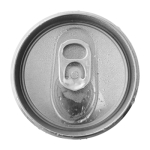Does intermittent dieting equal long term results?

What is dieting?
Dieting is when you restrict yourself to small amounts or special kinds of food to lose weight.
Does dieting work?
Many people do lose weight when dieting. The problem is a diet is a temporary, short-term plan, not a long-term solution. Many regain lost weight after the diet ends.
What about intermittent dieting?
Continuous dieting is very restrictive and often difficult to maintain for the required length of time to hit goal weight levels. This has led to increased interest in intermittent energy restriction. An example of intermittent energy restriction is alternate-day fasting. This type of dieting involves a “fast day” with reduced or no energy consumed followed by an all you want “feast day”. Another intermittent energy restriction example is a 5 and 2 regime where you eat however you desire five days and fast on two days.
However, the greater problems with diets is seen at the six month mark when weight regain often occurs.
Diet Soda: Good or Bad for Your Heart Health
 Research is shedding light on the impact drinking diet soda can have on your health. A study with 2,500 participants was presented at the American Stroke Association International Stroke Conference. Study results found those who drank diet soda daily had a 61 percent increased risk of cardiovascular events versus those who did not consume soda. These results remained even when factors such as smoking, physical activity levels, alcohol consumption, and dietary intake were taken into account.
Research is shedding light on the impact drinking diet soda can have on your health. A study with 2,500 participants was presented at the American Stroke Association International Stroke Conference. Study results found those who drank diet soda daily had a 61 percent increased risk of cardiovascular events versus those who did not consume soda. These results remained even when factors such as smoking, physical activity levels, alcohol consumption, and dietary intake were taken into account.
Researchers did go a step further and took into account these 3 situations:
- Metabolic Syndrome
- Peripheral Vascular Disease
- Cardiac Disease History
When these were factored in, the cardiovascular risk associated with drinking diet soda did decrease to 48%… 48% is still significant.
The connection between diet soda and cardiovascular risk appears to be related to metabolic syndrome. Metabolic syndrome is the name given to a group of risk factors that raise your risk for heart disease. These risk factors include: Continue reading
Cold Temperatures: Shiver and Lose Weight?

We had a terribly cold December here in South Dakota and our heating bill reflected this…higher than it’s been since we moved here three years ago. Needless to say, we are wearing a few more layers in January and letting the house get a little cooler.
For those of you also not turning up the thermostat too much, the chillier temps do help promote faster metabolisms and potentially weight loss.
When external temperatures decrease the body has to work harder by expending more energy (i.e. calories) to maintain core body temperatures.
This isn’t new knowledge, but research continues to be conducted to determine the effects of temperature on weight loss.
Studies have shown shivering to increase heat production. Shivering is a short term response to low temperatures to protect the body temperatures dropping to dangerous levels. Some studies have also found a second type of shivering, referred to as non-shivering thermogenesis, which also increases heat output.
However, the body acclimates to colder temperatures over time. For example, it was found people spending six hours a day at 59 degrees Fahrenheit shivered less and were more comfortable at the end of a 10 day period.
At this time there is no exact measure for how being cold can increase calories burned and promote weight loss. Weight gain can occur gradually. It only takes 100 extra calories a day to add 10 extra pounds each year. If you could counteract this with a cooler environment…might be worth exploring.
I do find the following particularly interesting.
Did you know there were two different types of fat? Continue reading
Lifestyle Changes vs. Diet to Lose Weight
 In order to promote heart health, many times weight loss is required. With over two-thirds of the US adult population being overweight or obese, this is almost a given…even though there are exceptions. When you think about weight loss I think “diet” is the first thing that comes to mind. Plus, in some ways it is more appealing. It somehow equates to quick results. However, you do have another option – lifestyle changes.
In order to promote heart health, many times weight loss is required. With over two-thirds of the US adult population being overweight or obese, this is almost a given…even though there are exceptions. When you think about weight loss I think “diet” is the first thing that comes to mind. Plus, in some ways it is more appealing. It somehow equates to quick results. However, you do have another option – lifestyle changes.
Lifestyle changes are more effective long term than “going on a diet”. Let’s compare these two options.
Diet
There are many diet options.
Low-carb
Low-fat
High protein
Vegetarian
Blood type diet
The Zone Diet
South Beach Diet
Weight Watchers
Raw Food Diet
Jenny Craig
Dean Ornish Diet
Mediterranean Diet
Atkins Diet
…and the list goes on. Which one is right for? All the diet options are more likely to cause confusion as you determine which one is best. Plus, the word “diet” implies a short term fix. You’re not going to stay on a diet forever, right? This means after the diet ends, most people regain the weight and you are right back to square one.
For long term success, lifestyle changes are shown to have more lasting results.
Weight Loss: Are you sabotaging your results?
 If losing weight was easy, we wouldn’t be facing this obesity epidemic in the U.S. There are so many factors working against us that successful weight loss is a struggle. It doesn’t help if you are self-sabotaging your own efforts to lose weight.
If losing weight was easy, we wouldn’t be facing this obesity epidemic in the U.S. There are so many factors working against us that successful weight loss is a struggle. It doesn’t help if you are self-sabotaging your own efforts to lose weight.
Here are 5 ways you may be hindering your weight loss success:
- Liquid calories
All calories add up and you may not realize how quickly liquid calories add up. Think about what you add to your coffee in the morning (or throughout the day!), any juice you drink with breakfast, sports drink or soda you may grab as a “pick me up”. . . all those calories add up and can add up substantially.
- Ordering a salad because it’s a salad
Continue reading
Eating the Same Foods Can Help You Lose Weight
 Do we have too many options when it comes to food? According to a study published August 2011 in the American Journal of Clinical Nutrition, too many options may be one reason pounds are packed on.
Do we have too many options when it comes to food? According to a study published August 2011 in the American Journal of Clinical Nutrition, too many options may be one reason pounds are packed on.
On the flip side, the study found eating the same food over and over lead to boredom and a decrease in caloric intake.
Food Boredom is a Good Thing
Research indicates that repeat exposure to a particular food leads to disinterest. The response is called habituation and can lead to a decrease in caloric intake in the short term.
In the U.S. we are blessed with a wide variety of choices and all we have to do is enter a grocery store. The problem with variety doesn’t necessarily apply to having access to a wide variety of fruits and vegetables – not too many people can say they are overweight because they ate too many greens! – the problem comes from the overwhelming abundance of low-fat, low-nutrient options.
There is a ‘food addiction hypothesis’ that proposes some people overeat because they are not sensitive to normal habituation and require even more of a food to trigger disinterest.
There has not been a lot of research in this area to determine if the habituation process is different between individuals of a healthy weight versus those who are overweight.
The study published in the American Journal of Clinical Nutrition aimed to study the long-term habituation in obese and non-obese women.
Habituation Equals Fewer Calories




